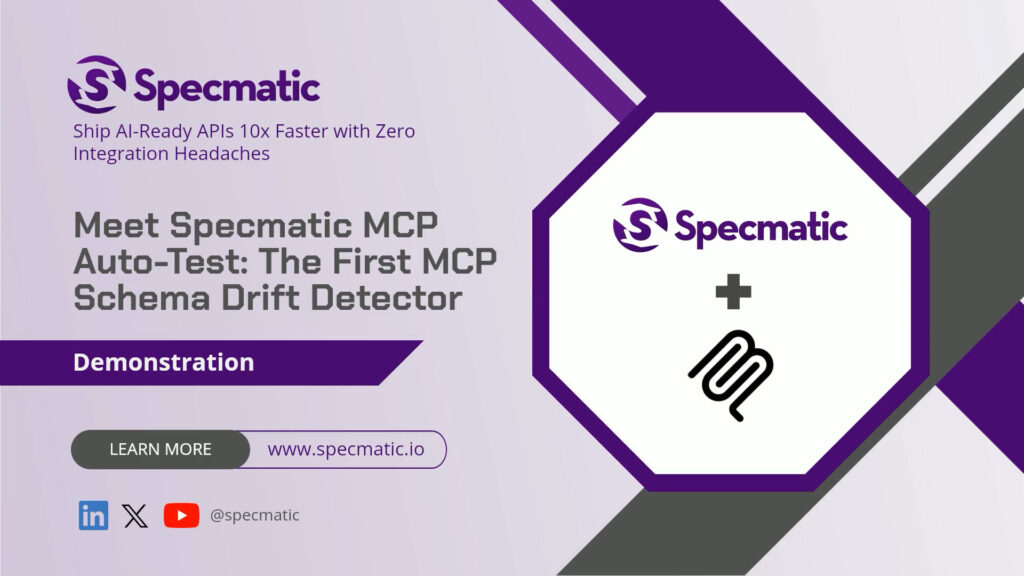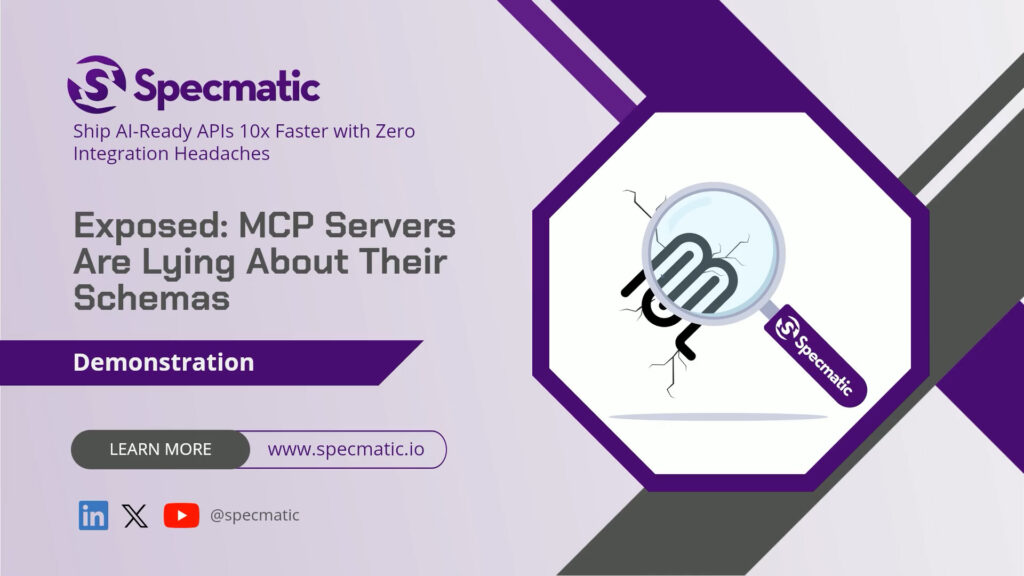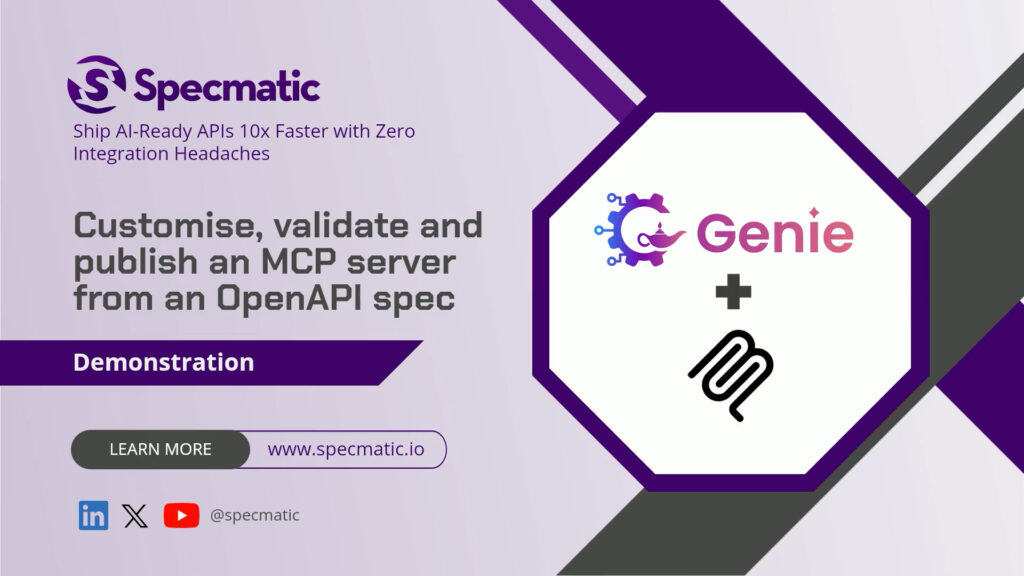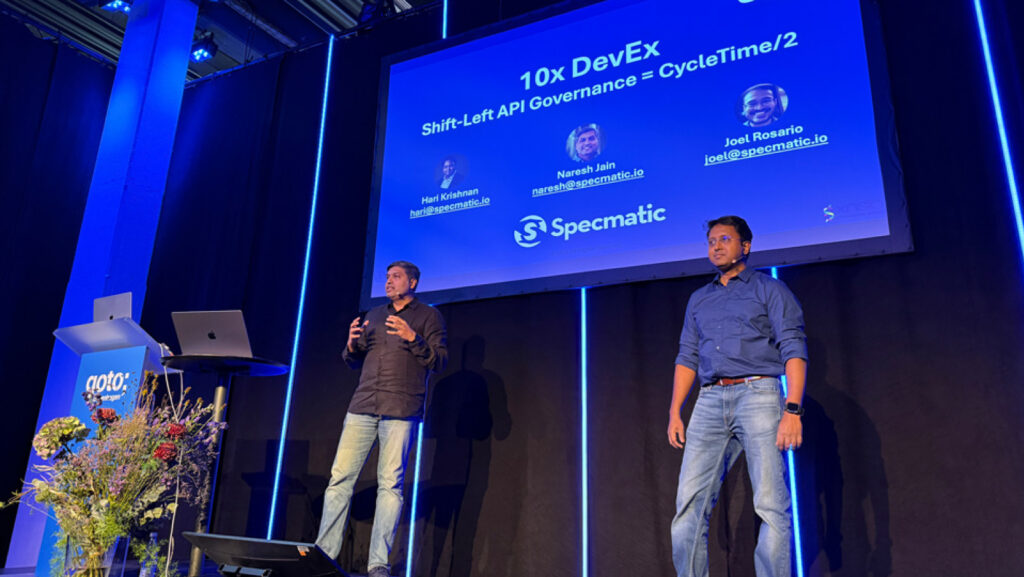Contract Testing using gRPC Specs as Executable Contracts
By Yogesh Nikam
Transform your gRPC API specs into executable contracts in seconds
Now you can easily leverage your gRPC APIs for contract testing, intelligent service virtualisation and backward compatibility testing, just like you would for your OpenAPI-based services. No more complex and brittle setups that involve an assortment of tools – Specmatic handles it all for you, thereby making for a one stop solution that enables a seamless DevEx.
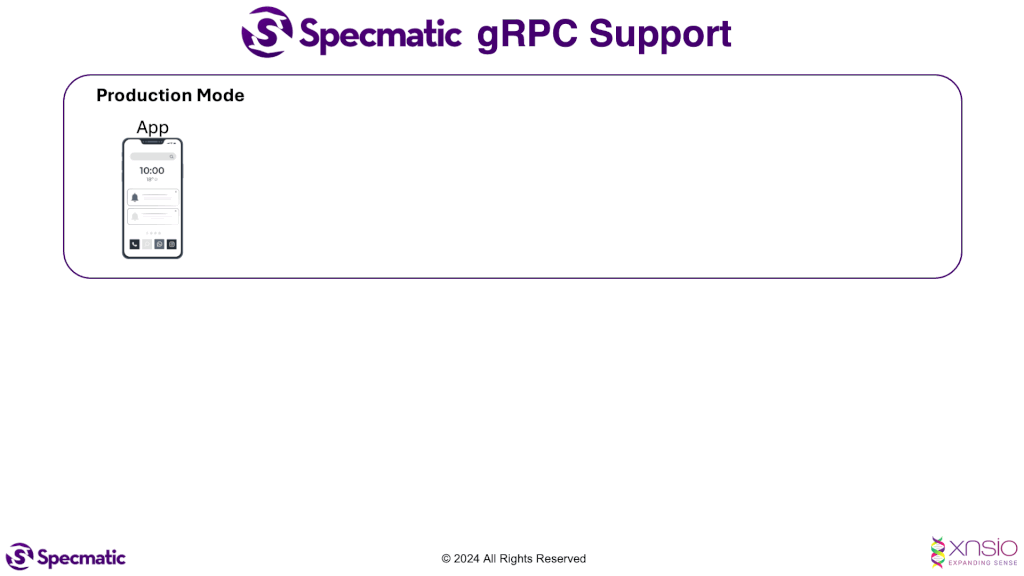
Streamlining Microservices Development with Contract-Driven Testing
In the evolving world of microservices, ensuring robust and reliable communication between services is no small feat. Services need to interact efficiently without introducing bottlenecks or faults that could lead to system failures. Specmatic is a powerful tool that simplifies the contract testing of gRPC services, thereby enhancing the resilience and dependability of microservice architectures.
Understanding the Architecture
Our application comprises three key components: the client, the Backend-for-Frontend (BFF) service, and the backend domain service. The glue binding these components together is the gRPC protocol, renowned for its performance and efficiency. Testing these components in isolation becomes paramount to ensure independent functionality and overall system stability.
Specmatic steps into this context to make the otherwise daunting task of contract testing straightforward and maintainable. In testing mode, Specmatic replaces the real client with a simulated client and the backend domain service with a gRPC stub, mimicking its interactions and responses.
The Power of Specmatic in Isolated Testing
In isolation testing, the aim is to test the BFF service without depending on the client or the backend domain service. This setup leverages Specmatic, which acts as a substitute for these components by emulating their behavior. By doing so, Specmatic effectively validates the interactions and ensures they comply with the defined contract.
Specmatic achieves this by generating a stub based on the API specification file of the backend domain service. This stub is a highly accurate representation, ensuring the BFF behaves correctly even in the absence of actual backend services. This results in faster and more efficient tests.
Exploring the gRPC Methods and Tests
Let’s dive deeper into the testing methodology by examining the gRPC methods and the corresponding tests. A typical RPC method such as create order expects a request containing a new order’s details and returns an order ID. Specmatic tests validate these interactions against the specified contract.
Valid Request Testing
When a valid request, adhering to all required fields and constraints, is sent to the BFF service, Specmatic ensures the response is validated correctly against the schema. If the responses conform to the expected contract, the tests pass seamlessly, confirming the service’s behavior.
Negative Scenario Testing
Specmatic also excels in testing negative scenarios, known as mutation-based testing. Consider a scenario where a request field such as count is below the minimum value defined by the contract. Specmatic expects an appropriate error response. If the service fails to handle this correctly and returns a valid response instead, Specmatic identifies the issue, flags the test, and highlights exactly where the problem lies.
This meticulous approach extends to other tests, such as missing required fields. Specmatic checks for the appropriate error handling, ensuring that every plausible negative scenario is rigorously tested.
Automated Test Generation and Execution
One of the standout features of Specmatic is its ability to auto-generate tests. Developers do not need to handcraft each test case; instead, Specmatic uses the API specifications to generate comprehensive tests covering various scenarios. This automation dramatically reduces the overhead and ensures no critical test cases are overlooked.
The Specmatic Configuration File
The real magic lies in the Specmatic configuration file, a YAML file detailing the specifications and configurations necessary for Specmatic to operate. This file specifies the specs for the BFF service and the domain services it depends on, guiding Specmatic’s test generation and stub creation processes.
Enhancing Microservices Reliability
The adoption of Specmatic in contract-driven development offers numerous benefits:
- Early Detection of Integration Issues: By validating interactions early in the development cycle, integration issues are identified and resolved promptly.
- Reduced Dependency on Live Services: Eliminates the need to run actual dependent services, thus simplifying the testing workflow.
- Assurance of Compliance: Ensures all interactions adhere strictly to the agreed-upon API contracts, fostering consistency and reliability.
- Boosted Developer Confidence: With exhaustive tests ensuring all scenarios are covered, developers gain increased confidence in the stability and resilience of the microservices.
Conclusion
Specmatic revolutionizes the way developers approach contract testing in gRPC services. Its ability to simulate clients and backend services, generate exhaustive tests, and validate interactions against strict contracts ensures that microservices can be developed, tested, and deployed with greater confidence. By maintaining API specifications centrally and automating test generation, Specmatic embodies the best practices of contract-driven development.
Getting Started
For gRPC, the setup process is just as straightforward as it is for OpenAPI. All you need are your gRPC proto files, along with a simple Specmatic configuration, and you’re good to go!
Sample gRPC projects
https://github.com/znsio/specmatic-order-bff-grpc-kotlin
https://github.com/znsio/specmatic-order-api-grpc-kotlin
https://github.com/znsio/specmatic-order-bff-grpc-go
Give a star to Specmatic – https://github.com/znsio/specmatic
Available in the Pro plan or higher

